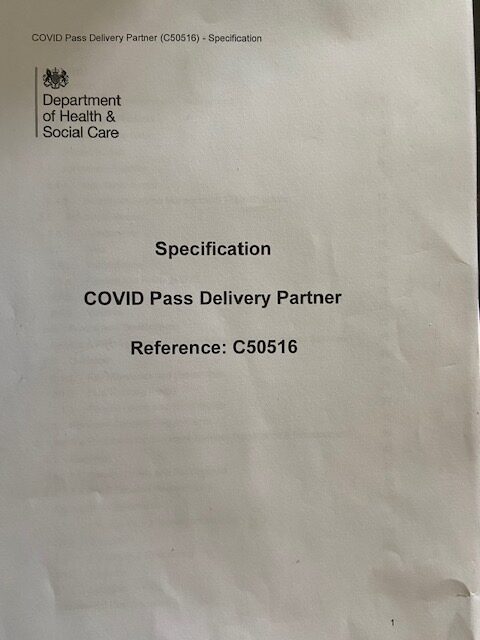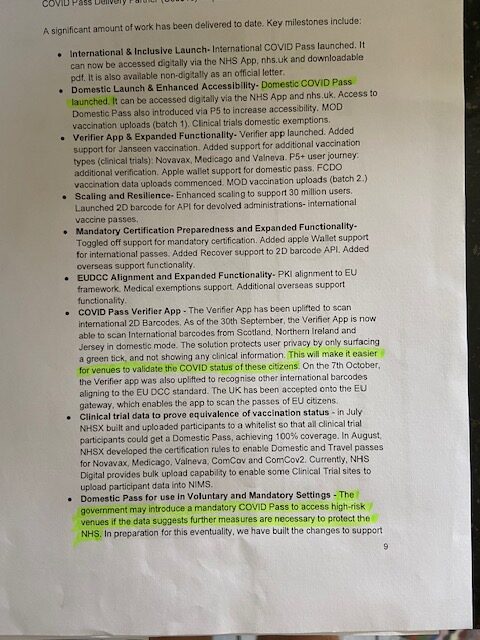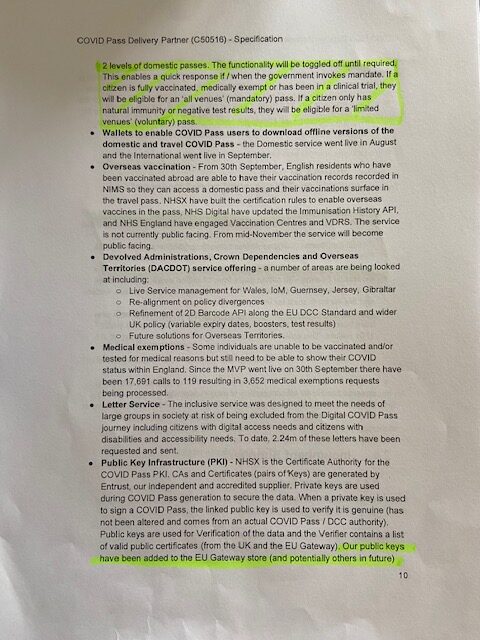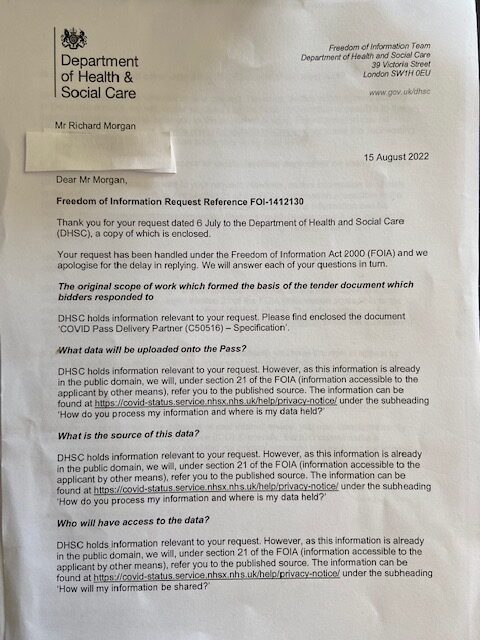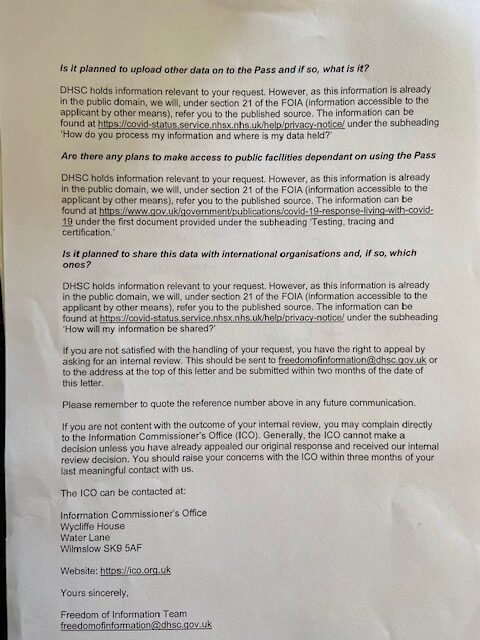Vaccine Passports Are Alive and Kicking
Mon 7:12 pm +01:00, 5 Sep 2022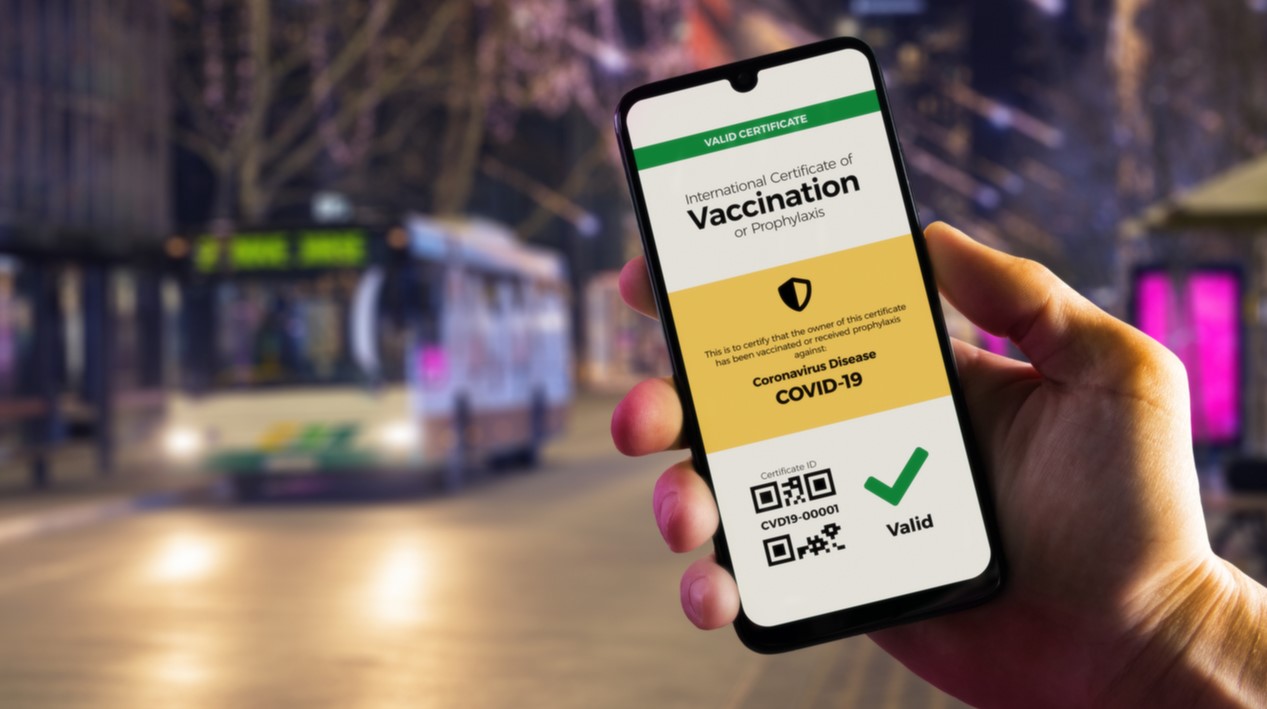
During a two year period that saw emergency powers granted to governments and unprecedented financial interventions, the introduction of vaccine passports was arguably the most divisive proposal. One side argued that it was, essentially, the only way to prevent the unclean from contaminating the rest of society whilst the counterargument was that they were a step too far in terms of personal liberty. Despite this, governments around the world pressed ahead, ostensibly to facilitate international travel and allow countries to open up.
However, the tantalising opportunity to introduce them into domestic use proved too great and, in the U.K., admission to nightclubs, sports events and pop concerts was only granted to the privileged few who could produce their papers. The project soon stalled, however, as it became apparent that even vaccine passports couldn’t hold back the march of an airborne virus. On October 11th 2021, the Welsh Government brought in compulsory vaccine passports for entry into all nightclubs and other large gatherings. Nevertheless, the infection rate continued to rise, and went higher than in England where vaccine passports were not law at the time. Failing to learn anything from this experiment, the Government brought in compulsory vaccine passports for England as part of Plan B on December 8th.
Under pressure, the U.K. Government had issued a ‘Call for Evidence’ in March 2021. The public were invited to respond to three questions which included:
In your view, what are the key considerations, including opportunities and risks, associated with a potential Covid-status certification scheme?
The Consultation Institute – an organisation promoting high-quality public consultation – criticised the Government on a number of levels, not least for being vague about the feedback process and whether this was simply a paper exercise. What isn’t vague is the public’s response: over 52,000 people responded (a high number for such an appeal), of which over 90% were very much against the introduction. It was a message to the Government so strong that, on September 12th 2021, in a BBC News interview Health Secretary Sajid Javid confirmed that plans for vaccine passports had been scrapped: “We shouldn’t be doing things for the sake of it”, he said. Prior to this, Michael Gove had stated on Sky News as far back as December 2020 that “I certainly am not planning to introduce any vaccine passports and I don’t know anyone else in Government who is.” Yet then the Government introduced them anyway at the end of 2021, before scrapping them in January 2022.
In March 2021 a decision was made by the U.K. Health Secretary to hand over delivery of the Covid Pass programme to NHSX. This is a joint unit which brings together teams from Department of Health, NHS England and NHS Improvement to promote the use of digital technology in care.
In April 2022, an Invitation to Tender (ITT) was issued by NHSX, and a Danish company called Netcompany Ltd won the £18m bid to: “Deliver the NHS Covid Pass App live service including operational management, incident management and support, and app development services.”
In simple terms, all your personal health data will be consolidated in the NHS App which will become the single point of interaction between the user and the Government. It will take data from a wide variety of sources including GP Services, NHS Trusts, Test & Trace etc. and interface with similar projects in at least 70 countries around the world including those in the EU. Although the current emphasis is on Covid, the ability to incorporate many other aspects of an individual’s health profile and link those to a centralised ‘command and control’ system is very much part of the plan.
Through a Freedom of Information request, I obtained a copy of the scope of works for the project (Department for Health & Social Security, Specification for Covid Pass Delivery Partner, Reference: C50516). On page nine is the following operational requirement:
Domestic Pass for use in Voluntary and Mandatory Settings.
The Government may introduce a mandatory Covid Pass to access high risk venues if the data suggests further measures are necessary to protect the NHS. In preparation for this eventuality, we have built the changes to support two levels of domestic passes. The functionality will be toggled off until required. This enables a quick response if/when the Government invokes a mandate. If a citizen is fully vaccinated, medically exempt or has been in a clinical trial, they will be eligible for an ‘all venues’ (mandatory) pass. If a citizen only has natural immunity or negative test results, they will only be eligible for a ‘limited venues’ (voluntary) pass.
The covering letter from Maggie Throup, the MP fronting the programme, states: “Although domestic certification is no longer being used in the U.K., the NHS Covid Pass still requires updating and maintaining for travel purposes.” This is plainly at odds with the operational requirement quoted above, where far more than travel purposes are envisaged.
Despite a public consultation which emphatically rejected the concept and the Government having scrapped the scheme at the start of the year, it is very obviously preparing to introduce it, if needed, at the flick of a switch.
